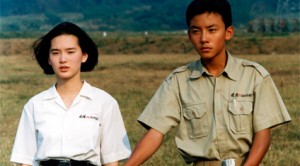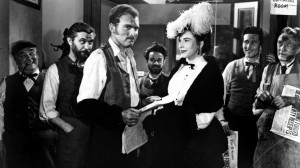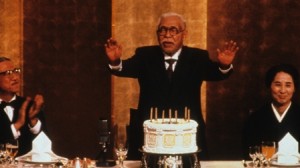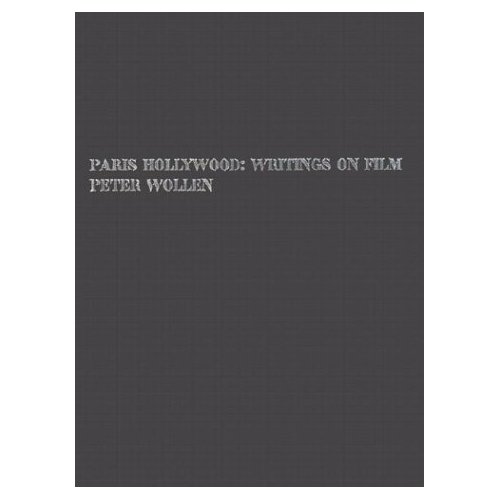From Cinema Scope, Winter 2005, issue 21. Much of this column is out of date — starting with the URL in the first sentence, which none the less does take you somewhere that’s related. — J.R.
My most fruitful recent discovery for ordering rare films on DVD is www.superhappyfun.com — a mysterious U.S.company whose name sounds oddly Japanese and who makes its own Region 0 DVD-Rs (“a movie that’s been ported over from VHS, tweaked with a time-based corrector, and recorded onto a consumer-grade DVD”), packed in envelopes rather than boxes to save costs and usually priced at $13 apiece. The prints used vary in quality and are ranked in their catalogue entries between 10 (best) and 4 (worst); I’ve found so far that anything below 7 borders on the dubious (such as my blotchy albeit subtitled copy of Jacques Rivette’s Paris Belongs to Us, assigned a 6).


Among the treasures I’ve recently acquired are Edward Yang’s A Brighter Summer Day (the full version, with English subtitles, on two discs, for $15), The Exterminating Angel subtitled, The Girl Can’t Help It letterboxed, a couple of restored Ernst Lubitsch musicals (Monte Carlo and One Hour with You), Joseph Losey’s M, Jacques Tourneur’s Nightfall, Kinugasa’s A Page of Madness (which has no intertitles, so subtitles aren’t needed), Fuller’s Park Row, and Antonioni’s The Passenger. Read more
From the Chicago Reader (March 1, 1998). — J.R.

The Japanese title literally means “not yet,” a child’s response to the query “Are you ready?” in a game of hide-and-seek, and Akira Kurosawa’s 1993 film is his own way of saying the same thing. Written and directed by Kurosawa at age 83, this very personal film, set between 1943 and about 20 years later, concerns a retired professor (Tatsuo Matsumura), his circle of adoring former students (all male), his cat, and his wife. It?s full of moving moments, but unlike the exquisite Rhapsody in August (1991) it can’t be regarded as major Kurosawa. Basically a series of sketches drawn from the writings of Hyakken Uchida, the film periodically calls to mind John Ford’s The Long Gray Line as an extended valediction (one long birthday gathering seems to go on forever). Madadayo has the expressionistic simplicity of Kurosawa?s other late films, their distillation and intensity of emotion; one of the lengthiest episodes, about the loss of the hero’s cat, is especially powerful. There’s something undeniably hermetic and at times sluggish about the film’s style, but the sheer freedom of the discourse—the way Kurosawa inserts brief flashbacks into the narrative whenever he feels like it or ends the movie with a dream—is comparable in some ways to late Buñuel, and the film shares his poignant sense of wonder. Read more
From Cineaste, Fall 2003. — J.R.
Paris Hollywood: Writings on Film

by Peter Wollen. London and New York: Verso, 2002. 314pp. Hardcover: $60.00 and Paperback: $20.00.
One of the more interesting paradoxes of Peter Wollen’s writing career is that he was perceived as an academic well before he had a long-term teaching post whereas today, with a seemingly permanent berth in the critical studies program at UCLA’s film department, he’s more apt to come across as a journalist. Part of this has to do with the magazines he writes for, though it might be added that for better and for worse — and more for the better — there’s always been a breezy, nonpedantic side to his writing that makes it far more accessible and user-friendly than the work of many of his more theoretically-minded colleagues. Paris Hollywood, his latest collection, is an agreeable showcase for this quality — more so, in many ways, than Readings and Writings (1982) and Raiding the Icebox (1993).
There are, to be sure, some scholarly limitations to Wollen’s lightness of tone, at least when he falls too readily into certain easy generalizations. It may sound reasonable to write of Godard’s early work (in “JLG,” one of the better essays here), “He never once worked with a script-writer,” but only if one glides past the roles of Truffaut on Breathless and Rossellini and Jean Gruault on Les Carabiniers. Read more




